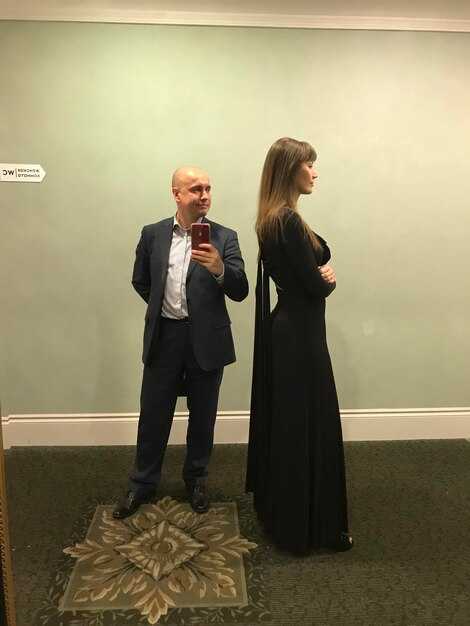There is always that one person you cannot completely forget. No matter how much time passes or how far apart you become, their presence remains woven into you. It feels as though they are stitched into the fabric of your being. You can meet countless others, laugh with them, swap stories, and even try to fall in love again, yet nothing truly replaces that singular connection deep inside. This is not obsession, nor merely nostalgia. It is something deeper, something beyond rational explanation. For someone with an avoidant style, that bond is even more mysterious. They are the people who seem distant when things become intimate. They withdraw when love starts to feel too real. They push away when you reach out. Still, they never entirely let the connection go. They may fall silent, act as if you never existed, yet beneath that emotional armor something remains alive — a quiet attachment, a hidden tie they often do not fully understand. See, an avoidant person does not forget easily. They feel intensely, far more than they will ever admit. Intensity frightens them, so they do what they always have: they flee from the very thing they crave. Here is the truth: the avoidant does not push you away because they stop caring. They do it because you matter too much. For them, love appears dangerous; intimacy feels like losing control. When someone touches a part of themselves that has been locked away for years, it awakens every buried fear. That is why they disappear — not to punish you but to protect themselves. Even in their departure, something inside clings to you. You become the measuring stick against which everyone else is compared, the connection they cannot discard. Though they may appear detached on the surface, an invisible, unspoken, enduring link ties them to you. This piece explores that secret bond: how it forms, why it persists, and why — despite every outward sign to the contrary — they never truly move on. First, let’s look at what is unfolding inside the avoidant mind. To understand an avoidant, you must enter their world — not judge or label, but feel what it is like to live perpetually afraid of closeness. From the outside, they appear strong, calm, almost emotionally separate, as if they need nobody. Yet that is a mask. Beneath it lives a person who once learned that love is unsafe. They may have grown up where feelings were ignored or vulnerability punished. Each attempt to reach out may have been met with rejection or silence. So they built a wall — not to keep people out, but to shield their heart from being broken again. Every avoidant carries this quiet belief: if someone gets too close, they will control me, hurt me, make me lose myself. So what do they do? They withdraw before the hurt arrives. They turn distance into safety and silence into control. And here is the paradox: the more they avoid connection, the more they yearn for it. They do not want loneliness, yet they do not trust closeness. Imagine living like that — wanting love constantly and fearing it at the same time. Each relationship becomes an internal battle between the voice that whispers “I want you” and the one that screams “You will break me.” So when an authentic person appears — someone who truly sees them, listens, understands, and does not pressure — something remarkable happens. Briefly, their walls crack. For a moment they feel safe, perhaps for the first time in years. They start to consider that maybe they can trust. But safety also awakens their deepest terrors: what if they lose it? Panic follows, and they retreat. They vanish. You begin to wonder how someone can go from so close to so distant overnight. It is because love stirred parts of them they had buried: the memory of needing someone and being let down. They do not escape you; they flee from the pain that the connection threatens to reawaken. Yet this is where the secret bond takes root. Even after they run, even after they disappear, they carry something of you with them — something beyond logic. An emotional sense of security that cannot be replicated elsewhere. You may think they have forgotten, but you have been stored deep within them, a memory their nervous system refuses to erase. You were not just another person; you were a mirror reflecting pieces of themselves they had hidden. That kind of recognition does not fade. No matter how long the silence or how far they go, that link remains alive, tugging gently beneath the surface. That is why, months or even years later, a song, a scent, or a small reminder can instantly reopen that channel. When someone touches the deepest part of an avoidant’s heart, they leave a mark time cannot rub out. They may suppress it and run from it, but deep down they always know you were different — not because you chased them or begged them to stay, but because you reached them where no one else could. This is the foundation of the persistent bond tying an avoidant to one person forever. It is not about romance or possession; it is about emotional recognition. The instant two souls see one another beyond fear, defenses, and masks — that connection does not die even if the relationship does. When an avoidant encounters someone who reaches the core of their being, something inexplicable forms: an emotional imprint that resists time. This link does not depend on constant contact or spoken words. It lodges in their nervous system, giving them a sense of being at home even when miles apart. The truth is avoidants are not as indifferent as they seem. They remember feelings, not every incident. They might not recall each conversation or laugh, but they never forget how someone made them feel: calm, visible, understood, safe. That experience is rare for them, because most people make them feel pressured, misunderstood, or trapped. But when you arrive and bring steadiness to their chaos, you become the emotional blueprint of safety in their minds. That is why, even after they withdraw, they cannot fully let go. With every new person they meet, a quiet comparison happens inside them — and none measure up. Not because you were perfect, but because your energy reached a place in their soul they did not know existed. The first time an avoidant feels safe, it creates a lasting imprint, a silent memory etched into their emotional DNA that whispers to them even as they try to forget. It reminds them of a true connection they were not prepared for but cannot stop craving. They may cover it with distractions, other relationships, or busyness, but it lives below the surface, waiting for the right moment to resurface. Often they will convince themselves they have moved on. They will tell themselves they are free, that they no longer care, that the chapter is closed. But when the noise fades and they are alone in the quiet of their thoughts, reality returns. It appears in dreams, in songs, and in sudden recollections that seem to come from nowhere. That imprint tells them you were not just another memory. You were an emotional awakening, and awakenings do not vanish simply because they are denied. That is the power of the secret bond: invisible, irrational, something they cannot admit to themselves, yet undeniably present, gently shaping their emotions and guiding choices. What makes the bond even stronger is the contradiction that follows: their withdrawal is intended to preserve the connection, not destroy it. To many, their silence looks like rejection — cold and careless. Yet for them, distance feels like safety. When their feelings grow intense and vulnerability draws near, panic sets in. For them, weakness equals helplessness, so they do what gives them a sense of control: they pull back. They leave. Not to end the relationship, but to prevent it from breaking. In their minds, closeness threatens the bond; distance preserves it. It is a tragic misreading of love, but for them it is survival. Ironically, the very strategy they use to protect the bond often damages it. They think withdrawal will stop the relationship from collapsing, but it creates the isolation they were trying to avoid. Still, they cling to the idea that love is a risk and distance is safety: “If I stay too close, I will lose myself. If I stay too far, I will remain safe.” So they orbit the middle ground — half present, half gone, connected yet separate, yearning yet resisting. That is why being with an avoidant can be bewildering. One moment they are warm and present; the next, they vanish without warning. It is not a game or manipulation, but fear wearing the mask of control. The stronger the bond, the harder it is for them to handle. Often they withdraw most fiercely from the people they love most, because they know those people can reach parts they fought for years to hide. You can touch their wound, see through their armor — and that terrifies them. It is easier to flee than risk being fully seen. And yet, even as they run, the connection keeps them tethered. They might not call, but they feel you. They might not say your name, but you are on their mind. They may never confess it, yet that care never truly dies — it hides behind silence. There is a strange loyalty in the avoidant heart. Even when they leave, they take a piece of you with them. Even if they try to replace you, they find bits of you everywhere they go. They may pursue freedom, but the bond reminds them what real attachment felt like — something freedom cannot substitute. That is why they often return in subtle ways: a random message, a reply to a story, an unexpected reach after months apart. It is rarely mere coincidence. It is the quiet gravity of that emotional thread drawing them back to the place they once felt seen. The avoidant does not forget; they retreat into silence. Silence does not mean feelings are gone; it is their weight. It is their way of saying, “I feel so much and I don’t know how to handle it.” They hope distance will ease their emotions. But distance cannot dissolve a bond built on emotional truth. Truth does not vanish when someone steps away. The echo of that connection continues to hum softly in their life until one day they realize that regardless of how far they have traveled, the link still lives inside them. The secret bond that ties an avoidant to one person forever is not about dependence or clinging. It is about recognition — that rare moment when someone finally sees them, not the persona they present to the world but the hidden, frightened, tender part they have tried so hard to protect. When that part is understood, it creates a tie distance cannot break. This is not conventional romance; it is deeper — a psychological and emotional imprint that becomes part of who they are. So while they may run, withdraw, and try to forget, the truth is they never truly erase you because somewhere inside they know the connection was real. They felt something pure and human they will spend years trying to recapture, and they will never quite succeed. That is the avoidant’s paradox: they flee from love yet remain eternally attached to the person who showed them what genuine love could feel like. Time passes, but something inside them resists settling. They may fill their lives with distractions, work, friends, and new relationships, but there is always a quiet space that follows them everywhere. They can laugh, flirt, even convince themselves they have moved on, but late at night, when everything is still, your memory rises like a ghost that cannot be chased away. It is no longer about you as a person; it is about the feeling you gave them and the version of themselves they were when they were with you. They remember how calm they felt in your presence, how your energy eased their chaos, how you never tried to fix them but somehow made them whole. That recollection haunts them — not with pain so much as a slow mourning for what they lost by running. The moment they realize you were different does not always come with fanfare. It often arrives quietly: waking one morning with an inexplicable heaviness, a song transporting them to a time of safety, or catching sight of someone who resembles you and feeling a familiar ache. Truth appears as a whisper. They see that every subsequent relationship and connection hasn’t reached the same depth. The emotional imprint awakens; it is more than longing — it is recognition. Their hearts remember being understood once. For an avoidant, that realization is both beautiful and terrifying. Admitting it means confronting everything they fled from. They begin to see you were not merely another partner; you were the one who breached walls they swore would stand forever. You reached them without force, and that is why you are unforgettable. When they think of you, they do not recall the words but the silence between them: the ease, the calm, the permission to exist without performance. Compared to the shallow chats and cautious feelings they experience now, what you had felt rare and genuine. As this understanding deepens, their former safety of silence becomes suffocating. The independence they once prized begins to feel lonely. They wonder why they pushed away the one person who asked for nothing but authenticity. Memories — lines of conversation, a look, the warmth of being with you — start to surface, and a grief settles in. It is not simple regret but sadness for the version of themselves they lost by stepping back: the alive, open, human version. With this dawning awareness, they grasp what they could not before: they did not leave because you were wrong; they left because you were right. You made them feel too much, too seen, and too vulnerable. In that moment of recognition, their heart experiences a paradox: the same heart that convinced them distance was protection now longs for closeness. This emotional awakening is cruel and beautiful: once you have felt genuine connection, every lesser bond becomes a reminder of what is missing. So they begin searching, often unconsciously — looking for you in others, in a particular tone of voice, a familiar smile, or a small gesture that felt like home. But it can never be as it was. Even with great effort, they cannot recreate the safety you provided. That kind of bond doesn’t happen twice. It is felt once and remembered forever. They might find attraction, comfort, even affection again, but the unspoken understanding is absent. It is like chasing a shadow: no matter how fast they run, it remains out of reach. And here the truth clarifies: you were never merely a chapter in their life. You were the story that changed the meaning of every chapter thereafter. They will try to move forward, but the bond prevents forgetting. It is not a chain but a gentle reminder that what they had was real. In a world of impermanence, the real becomes rare, which is why they cannot replace you. Not because they have not found someone “better,” but because “better” does not mean deeper, safer, or more seen. You reached them in a way that redefined connection. Now every relationship after you feels like an echo — familiar, but incomplete. The more they attempt to replicate it, the more they fail, because no one else knows how to speak their emotional language as you did. You addressed their fears without words; you gave space without abandoning them; you loved quietly in a way that freed rather than trapped. That kind of love does not vanish. It cannot be easily explained to others; most people will not understand. They may tell themselves the feeling was imagined or that they have moved on, but deep down they lie — the sensation still lives within them despite their efforts to bury it. They notice it in small things: a scent that hits them in a wave, a place you once visited together that suddenly feels heavy, a vivid dream they cannot ignore. Each reminder arrives softly but persistently, proving some connections are not meant to fade. They are meant to shape. They are meant to teach. They were supposed to stay. That is why avoidants keep the memory not as pain but as proof: once someone saw through their walls and loved them anyway. This is the quiet truth of the avoidant heart: they do not forget the person who reached them. They may move on, they may remain silent, yet they will never truly replace you because you were not something they wanted — you were something they needed. That distinction matters. You awakened something human inside them, and that awakening does not die. Even if love fades in some form, the memory hums gently in the background, a reminder that someone once saw who they were beneath the fear. It ties them to you in ways they can never fully explain. Time has a way of changing distance. The longer their silence, the more it begins to feel like confinement rather than freedom. What seemed once like liberation becomes emptiness. Small things start to prick at them: moments that remind them of what they once fled. A movie both of you loved, a place that grows suddenly familiar, a spontaneous memory that refuses to leave. This is where it begins: the quiet return. Returns seldom start with grand gestures or apologies. They begin with something minimal, almost imperceptible — a random text, a story reply, a simple “hey, how are you?” on a night when loneliness becomes unbearable. It seems ordinary but is not. It is the thread pulling them back — that emotional filament that never broke, gently tugging until they eventually give in. Avoidants do not come back because they have stopped being afraid of closeness. They come because the bond outlasted the fear. They return because, deep down, they recognize that what they felt for you was not something they could find elsewhere. Even without fully understanding it, something within knows the connection never truly ended — it merely quieted. They test the waters with small interactions, unsure if it is safe to approach again. They may be sparse with words, but each one bears the weight of all that was left unsaid. They may not offer direct apologies, but their energy conveys what words cannot: I missed you. They often return the same way they left: gently and cautiously, hoping you will still recognize the unspoken part of them that always belonged to you. When they reach out, it is not about control or closure but curiosity — a fragile curiosity born from a heart that still feels tied to something real. They want to know whether the bond remains, whether it lives between you as it does within them. Sometimes they cannot explain why they do it; they tell themselves it is just checking in. The truth is the emotional imprint calls them home. Despite how many walls they rebuild, the pull remains stronger than their fear. It is the universe reminding them that some connections should not be allowed to fade quietly; they are meant to echo through time until both hearts are ready to face them again. But here is the catch: by the time they return, you will have changed too. You have grown. You have healed. You have learned to distinguish between holding on and honoring what was. You no longer wait for them because you have found peace in the silence. You are not pursuing what remains because you understand true love cannot be forced. This is the paradox of the secret bond: the more you let go, the stronger it becomes. When you stop trying to fix them and stop reminding them you care, something shifts. They finally get the space to arrive at their own realization. Leaving them alone does not mean you stop loving them; it means you stop losing yourself trying to make them love you in the way you hope. It means accepting that connection cannot be controlled — it must be experienced, learned from, and then released. By stepping back, you do what the avoidant could not: you face the fear of loss and trust that what was meant to remain will find its way back. That quiet energy, that calm, becomes magnetic. Avoidants are drawn to stability even if they cannot name it. They long for the safety of someone who no longer needs validation, someone who stands calmly rather than chases. That is when the bond transforms. It stops feeling heavy or desperate; it becomes sacred. Attachment was never about possession. It was about awakening. Both of you entered each other’s lives to mirror what needed mending. You showed them what safety felt like; they showed you what letting go truly means. You taught them that love invites rather than demands. In return, they taught you that you can love deeply without losing yourself. That is the beauty of this connection: even if the relationship does not continue, it always leads to growth. The avoidant may not say it, but they carry the lesson forward into every future relationship — your patience, your empathy, your emotional depth become the quiet standard they hold others against. For you, the lesson becomes deeper still: strength was never in clinging, but in allowing life to unfold. You learn that love does not need permanence to be meaningful. Sometimes its purpose is to teach, to break you open, and to help you become stronger and whole — the version of yourself that no longer needs someone else to validate your worth. Pain transforms into peace. You stop wondering whether they will come back and begin to trust that, whether they return or not, you will be okay. The bond may remain, but it no longer defines you; it refines you. And here is the final twist: when you reach that place of peace, it is often when they feel pulled most strongly. They sense the change in your energy — that you no longer depend on them to complete your story. That unstressed, quiet love is what they secretly wanted but never thought possible. They may find their way back, not because you waited but because your serenity called them home. Even if they never return, the bond endures as a calm truth between two souls that once met at the right time for the wrong reasons and altered each other forever. Letting go does not break the connection; it strengthens it, transforming something heavy into something free. True connection does not require control; it requires trust — trust that what is real remains real even when silence begins. Trust that sometimes the most powerful act of love is not to clutch tightly but to release gently. An avoidant will always remember the person who offered that kind of love — the one who asked for nothing but gave everything, who saw through the walls and chose to love anyway. They showed that being connected does not mean constant presence; it means impact. That imprint quietly persists in both of you. In the end, the secret bond is not about possession or keeping someone against their will. It is about recognition: those rare moments when two souls truly see one another and something inside each awakens. You did not meet by chance; you met to remind each other what true connection feels like. An avoidant might spend years evading, denying, or attempting to replace that feeling, but somewhere inside they know what you shared was not ordinary or fleeting — it was true. Such truth leaves a quiet mark on the spirit, which is why you can still feel them even when they are gone. Why their name still carries a pulse. Because the bond did not die when they left; it simply changed shape. It became something spiritual, invisible yet deeply felt. It lives in the lessons, in the growth, in the quiet assurance that love need not be loud to be real. Sometimes the strongest love story is not the one that ends together forever, but the one that ends with understanding — the knowledge that you touched someone in a way they will never forget. So when you think of them, do not think of loss but of legacy. You became a mirror that revealed who they were beneath their fears, and that reflection will remain with them always. No matter how far they go, a part of them will carry the calm, safety, and love you alone offered. That is the secret bond: quiet, unseen, and eternal.



 Скрытая связь, которая навсегда связывает избегающих с одним человеком | Джордан Питерсон | Мотивационная речь">
Скрытая связь, которая навсегда связывает избегающих с одним человеком | Джордан Питерсон | Мотивационная речь">

 Why Your Ex Will Never Replace You (And Here’s Proof) | Avoidant attachment style">
Why Your Ex Will Never Replace You (And Here’s Proof) | Avoidant attachment style">
 5 Shocking Reasons You Shut Down Emotionally (That No One Told You)">
5 Shocking Reasons You Shut Down Emotionally (That No One Told You)">
 Validating Pain in the Past">
Validating Pain in the Past">
 When the Avoidant Comes Back: Decoding Their 4 Texts (And How to Respond to Reclaim Your Power)">
When the Avoidant Comes Back: Decoding Their 4 Texts (And How to Respond to Reclaim Your Power)">
 Their Actions Have Consequences.">
Their Actions Have Consequences.">
 Что происходит, когда вы игнорируете угождающего? || Выгоревший до конца старатель">
Что происходит, когда вы игнорируете угождающего? || Выгоревший до конца старатель">
 Остановите вред от этих родителей сейчас (4-Video Compilation)">
Остановите вред от этих родителей сейчас (4-Video Compilation)">
 У некоторых людей ЕСТЬ ОГРОМНОЕ Преимущество (#4 в моей "Playing Small" серии)">
У некоторых людей ЕСТЬ ОГРОМНОЕ Преимущество (#4 в моей "Playing Small" серии)">
 Брак может быть ОЧЕНЬ одиноким.">
Брак может быть ОЧЕНЬ одиноким.">
 О чём НАСТОЯЩЕМ думает избегающий человек во время отсутствия контакта">
О чём НАСТОЯЩЕМ думает избегающий человек во время отсутствия контакта">